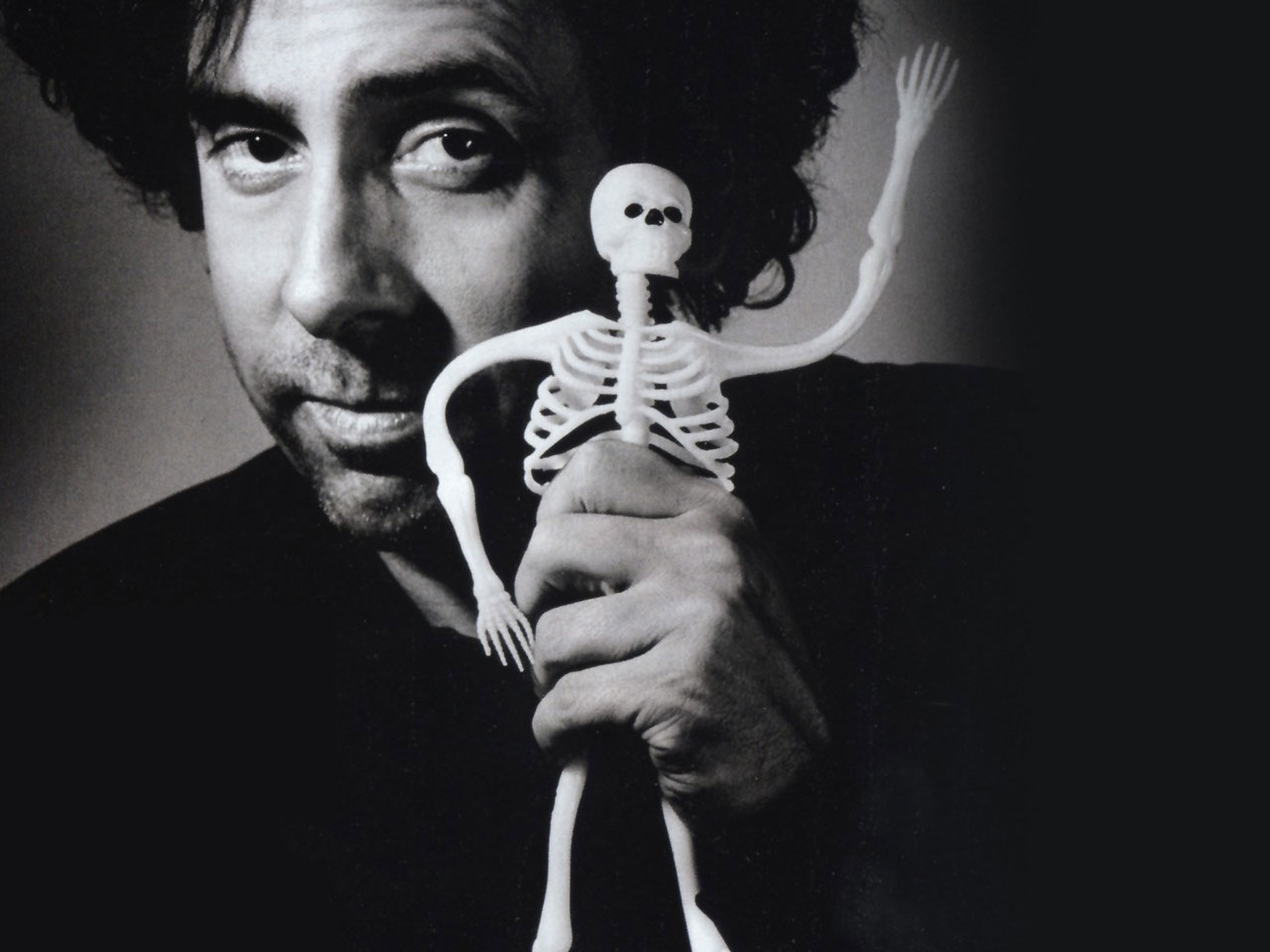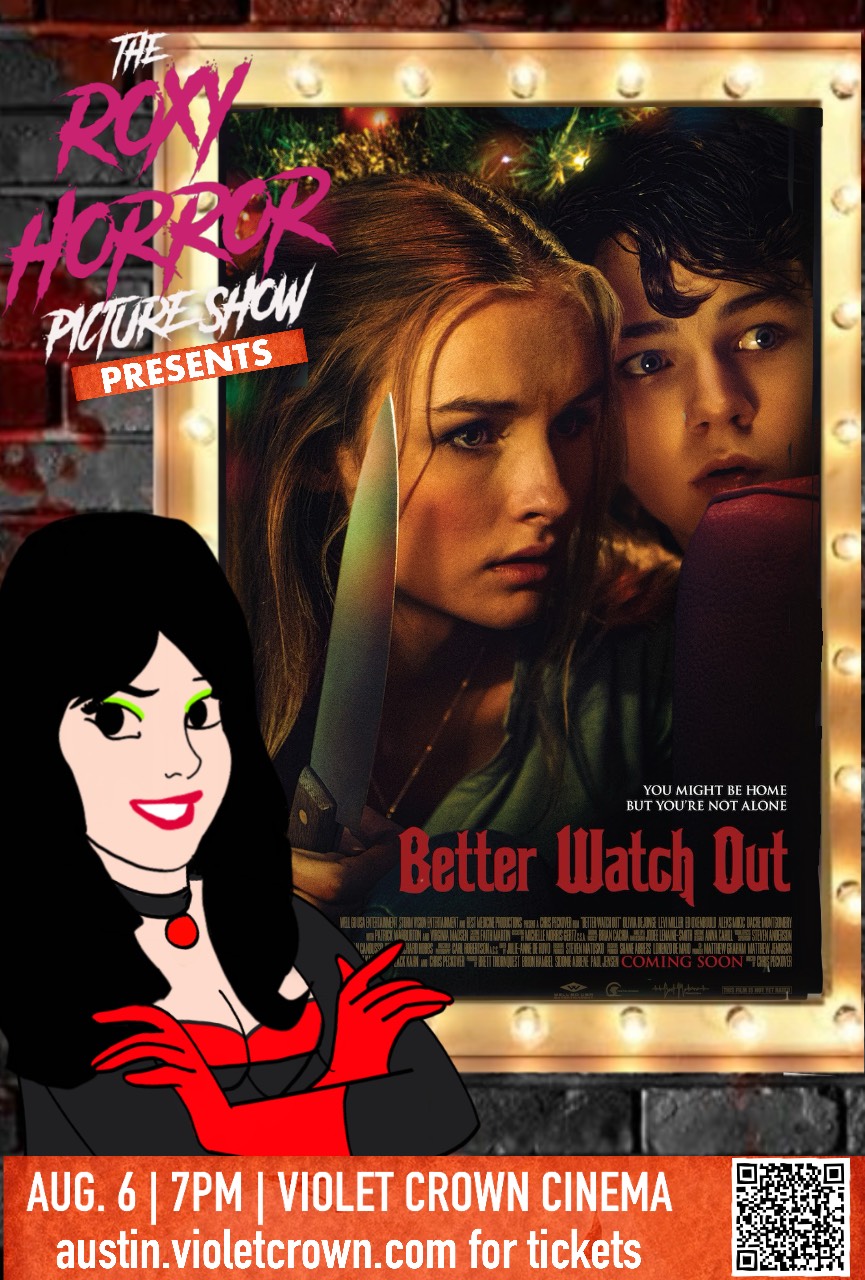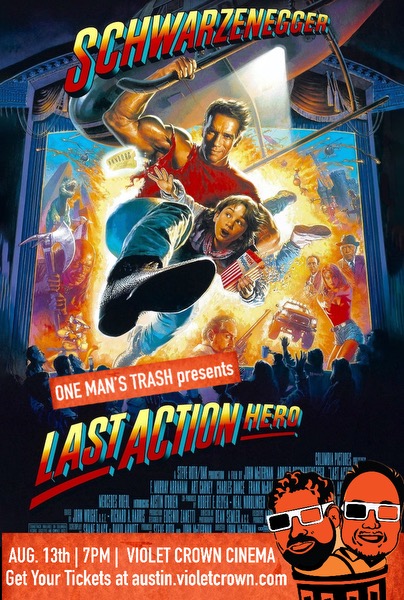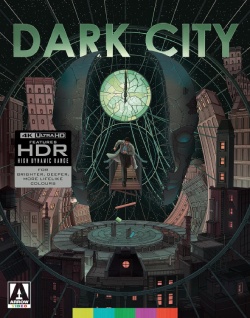Welcome back to “I’m All Out Of Love”, in which I take a pop culture subject (film series, director, actor, television show, etc) and dissect how my ‘love’ of them from early on slowly dwindled and what my current stance on them is.
I was never a goth kid when I was younger. I never powdered my face with white makeup, listened to The Cure on a regular basis. or had the poofy black hair. I apologize for the broad generalizations, but I have a point. By most colloquial standards, I was not part of what the general public would assume a “goth kid” would be. Yet, I would say the young bright-eyed and bushy-tailed Tommy Mariani fit one familiar and probably not accurate stereotype of the subculture: he loved the shit out of Tim Burton movies.
As a kid, Tim Burton was everything a young film-lover could ask for: his movies were bizarre, he had an eye for visuals, and his stories always had us rooting for the loner misunderstood outcast who just wanted to fit in with everyone else. Burton was an idol of mine for a little while. I still remember wearing out a VHS tape that had Burton’s episode of Biography on it (the Peter Graves narrated era of Biography mind you, not whatever the hell they did with it later). To my credit, I never came to school with a Nightmare Before Christmas backpack slung over my shoulder. By the point that came into fashion, my obsession for the poofy-haired goofy artist was done… but I’m getting ahead of myself.
The Spark:
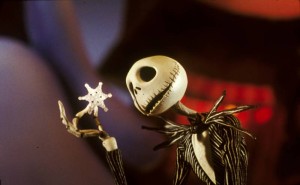
Pee-Wee Herman was a mainstay of my childhood. Mind you, I was born after the media hoopla surrounding Paul Reubens’ incident in the porn theater happened, so I would gleefully watch Pee-Wee’s charmingly weird antics via reruns and video cassettes of Pee-Wee’s Playhouse. So naturally, my father decided to unveil the film that put Pee-Wee into the public consciousness to me: the incomparable Pee-Wee’s Big Adventure. It was odd, even more so than the TV show was. Sure, the bright colors were there throughout, but there were dark moments in there too, such as the nightmare sequences, creepy lighting in places, the Large Marge scene. It was all unique and somewhat frightening to a kid like me… but I wanted more of it.
From there, Burton’s films from the 80s and 90s became ones I would treasure, but would also grow to appreciate more and more as time went on. Beetlejuice was the first movie to introduce the idea of a horror comedy to me. Before that, I was completely unaware that things I considered scary like ghosts could be played for laughs. Now, horror comedy is probably my favorite sub-genre. Honestly, I think Burton was my gateway to a lot of genre related material. His Batman movies were my introduction to superhero films, Mars Attacks was the first movie I saw with a rather large body count, and Edward Scissorhands was my first exposure to the concept of the Frankenstein-like “creation attempts to survive outside of his creator” story. Hell, his films were even influential to my musical taste. I was introduced to Danny Elfman and Oingo Boingo as a result hearing the beloved composer’s music in Burton’s films. Even as early on as his short films Vincent and Frankenweenie, Burton had the ability to adapt pop culture concepts he had grown up with and give them his own very creative spin, such as old horror movies, gothic architecture or suburbia. And I latched onto it, especially since I felt some resonance with the sort of loner outcast kid that Burton placed in his movies throughout much of my youth.
The Love Affair
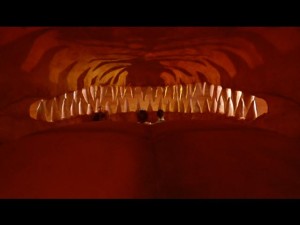
As previously identified by online internet reviewer The Nostalgia Chick, Tim Burton is one of the few auteurs working in Hollywood to have a very subversive style, yet still have movies that gross hundreds of millions of dollars. True, that style would eventually become very mainstream, but at the time, no other person was making weird films like Burton’s before he became a bonafide success, especially when compared to contemporaries of the same era like Robert Zemeckis or Steven Spielberg. Burton has been given carte blanche many times over to take Hollywood’s cold hard cash and make either his grand scale goofy art films or adaptations of previous properties the studio had through his goofy art film aesthetic. As a kid who was partially raised on the works of Zemeckis and Spielberg, Burton’s viewpoint and presentation felt refreshing.
So, Burton is basically the closest thing the Hollywood system has to a multi-million dollar grossing rebel. The best indicators of this, oddly enough, are usually the movies of his that disappointed the studios like the outlandish mesh of political satire, sexual identity crisis and Christopher Walken that is Batman Returns or the big budget Z-grade 90s parody of alien invasion movies that is Mars Attacks. However, the film that really spotlights what Burton attempted to achieve within the studio system yet was fairly underrated at the time was Ed Wood. Wood is not only my favorite Burton film, but one of my favorites films period. It takes this cult icon, known for making horrid below B-movie schlock, and turns him into the ultimate kind of underdog: the one who doesn’t really win. He finds some sort of happiness by the end of the movie, but the overall story is one of a hero who lacks the ability to succeed. Yet, in his own way, he finds contentment by embracing the idea of making art rather than it being perceived as good. Anyone who attempts to take on a creative endeavor can appreciate a naive yet charming attitude like that… though a bit of foul mouthed Bela Lugosi didn’t hurt too much either.
Nothing Lasts Forever
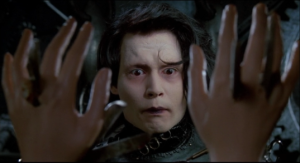
“I can’t.”
The first Tim Burton film I saw in a theater was Planet of the Apes. Let that sink in for a second; a kid like me who loved pretty much everything Burton-related who was not alive/too young to see most of the director’s earlier films ends up seeing 2001’s Planet of the Apes as his first Burtonized cinematic outing. I can still remember getting to that ending and wondering to myself “… maybe I’m not grown up enough to get this. Maybe I’ll watch this again later and it’ll make more sense.” Oh, how naive I was. No matter how much older I got, the antics of Marky Mark and the Furry Bunch never managed to click with me in any way, even (and especially) after I actually saw the original 1968 film.
But that wouldn’t be the last Burton disappointment. As the 2000s rolled on, Burton releases were largely disappointments. Films like Charlie and the Chocolate Factory, Corpse Bride, Alice in Wonderland and Dark Shadows felt less like genuine efforts crafted by someone who cared and more like someone giving in to the brand they had become. Corpse Bride in particular was the first point where I started to lose my passion for his work, as it just felt like this bland attempt at recreating The Nightmare Before Christmas, which (contrary to popular belief) he didn’t direct (big ups to Henry Selick). Many have accused Tim Burton of being a style over substance director, but his initial films showed a clear connection with his characters and the issues he was exploring. Yet, his further attempts at replicating his style during the new millennium didn’t seem to have the heart. Themes of non-conformity that were well explored in Edward Scissorhands became tacked on in Alice in Wonderland. The production design that dazzled me in Batman evolved into sets that just bored me in Charlie and the Chocolate Factory. The fish-out-of-water humor that made me laugh endlessly in Beetlejuice was warped into something unrecognizably dull in Dark Shadows. Burton turned into a former shadow of his gothic visage in my mind… and while it broke my heart as a kid, I eventually moved on from this disappointment.
Final Thoughts

Despite waning from the initial perceptions of perfection I had of him, there are signs that the old Tim Burton is still in there somewhere. Big Fish is still probably the best thing he’s done in quite some time, diverging from his usual style to tell a heartfelt and genuinely enchanting fairy tale. I also felt Sweeney Todd was an entertaining take on the Stephen Sondheim musical, in spite of Johnny Depp’s mediocre singing skills. It just felt like a return to his Sleepy Hollow style love of Hammer gore and over the top dramatics. I even enjoyed his feature length stretched version of Frankenweenie, which brought back some of his very old school charms. All three had what was centrally missing from most of Burton’s films at the time: a passion for the characters along with the visuals.
After all of the disappointment, I can’t really hate Tim Burton. He’s reached pretty low points in his career, but he’s given a decent amount of solid films along the way. At this point, Burton is more uneven then he was previously. Honestly, I think I’d respect Burton more today if he went for more of the bizarrely uneven films of his from the 90s like Mars Attacks or Batman Returns. Even when those films were taking weird turns that didn’t make sense, at least they were interesting choices that we hadn’t seen with Burton before. His biggest sin at this point is just that he doesn’t take risks like in his older films. That all being said, I’m quite curious about his next film Big Eyes, which is a) written by the same screenwriters behind Ed Wood, b) stars Christophe Waltz, Amy Adams and no one else from Burton’s typical acting pool (not even Helena Bonham Carter or Johnny Depp) and c) a biographical drama about artists in the 1960s, something Burton has never done! Looks like he’s going to be taking risks again… unless he goes full Burton with the Danny Elfman score.
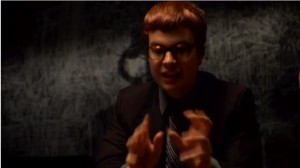
What do you all think of Tim Burton? Are you still swayed by his charms or is he grating on your nerves in glorious striped black and white? Post your thoughts in the comments below!

